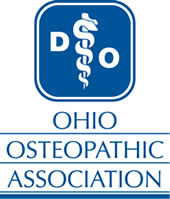Top 10
[September 2, 2021]
The OOA follows dozens of health-related bills in the Ohio General Assembly. This listing identifies ten priority bills. Of those, three have been enacted—which includes one via General Assembly override of Gov. Mike DeWine’s veto; six are pending; and one has been vetoed by DeWine but is also pending since there’s speculation the General Assembly will override it.
VETO
SB 113 Fireworks
DeWine vetoed the bill on July 9, 2021. Because of the summer recess there wasn’t time for the Legislature to override the veto. But they seem to have the votes in the House and Senate for the override. OOA has been actively involved in the bill as a member of the Ohio Fireworks Safety Coalition, issuing multiple action alerts, submitting testimony, signing-on to joint letters. The bill would allow Ohioans to discharge commercial-grade fireworks on specified holidays with minimal safety restrictions in place.
ENACTED
HB 110 State Budget
To make operating appropriations for the biennium beginning July 1, 2021, and ending June 30, 2023, to levy taxes, and to provide authorization and conditions for the operation of state programs. The $74.1 billion package includes $2 billion in tax cuts for over the next two years, an overhaul of school funding, broadband funding to $250 million, and provisions to allow college athletes to earn money off their name, image, and likeness. The law also includes a “medical conscience clause.” The last-minute provision allows physicians, hospitals, and health insurance companies to refuse to provide or pay for a medical service if it violates their moral beliefs. DeWine vetoed 14 items in the bill including changes to the Medicaid managed care procurement process.
SB 6 Medical Compact
The new state law authorizing Ohio to enter into the Interstate Medical Licensure Compact gives the State Medical Board (SMBO) until September 29, 2022, to implement the system. Physicians from any state with Compact membership, including Ohio, who meet the qualifications will be eligible for licensure in any other participating state. Physicians can still license directly through SMBO as the Compact will only be an additional option for multi-state licensees. The Compact only includes the licensing of physicians. Physicians who choose to obtain licensure through the Compact, whether as an Ohio physician who wants to practice outside of Ohio or as an out-of-state physician who wants to practice in Ohio, will have a licensure process different than the path currently followed by physicians seeking licensure in Ohio. Out-of-state physicians can continue to seek licensure directly now and after implementation of the Compact. Ohio is the 35th state to join the Compact and is the second largest state behind Texas.
SB 22 Health Orders
The Governor vetoed this bill, but it was overridden. This new law establishes legislative oversight for public health orders and limits the authority of the Governor and Health Director during public health emergencies. In his veto message, DeWine said the bill “handcuffs Ohio’s ability to confront crises.” The OOA urged opposition to the bill, along with other health/medical organizations, and also expressed support for DeWine’s veto.
PENDING
HB 135 Insurance Cost-Sharing
The bill prohibits the practice where insurers don’t count third-party payments – usually by a drug manufacturer – toward a patient’s cost-sharing requirements. The OOA offered written testimony in support of the bill to require health insurers to apply amounts paid by or on behalf of covered individuals toward cost-sharing requirements.
HB 176 Athletic Training
Athletic trainers are licensed health care providers of physical medicine and rehabilitation who partner with physicians to provide preventive services, emergency care, clinical diagnosis, therapeutic intervention and rehabilitation of injuries and medical conditions. Under HB 176, they would have the option to enter into a collaboration agreement with a physician or podiatrist, giving them the ability to perform additional services and activities. The practice act for athletic trainers hasn’t been updated in 30 years. There are currently over 2,300 licensed athletic trainers in Ohio.
HB 193 Electronic Prescriptions
The bill generally limits pharmacist dispensing of schedule II controlled substances to those prescribed electronically, rather than in writing or electronically as under current law. The bill maintains a current law provision allowing, in emergency situations, for schedule II drugs to be dispensed upon oral prescriptions when the conditions established in federal law are satisfied. It also provides for other exceptions to allow a pharmacist to dispense upon a written prescription.
HB 221 Advanced Practice Registered Nurses
The OOA continues to oppose the bill. A similar measure was introduced last session (HB 177).
HB 248 Vaccinations
After weeks of testimony, dozens of witnesses, and 11 versions of the bill, it was stalled in committee. The brakes were seemingly pumped after business groups joined health and medical associations—including OOA—to oppose the bill. In addition, DeWine is not supportive of the bill. He has consistently stated he opposes legislation that discourages vaccination or prevents businesses from keeping their employees safe. Health Committee Chair Scott Lipps unexpectedly called for the committee to meet during summer recess to hear the bill. OOA President Henry L. Wehrum, DO, and Health Policy Committee Chair Jennifer L. Gwilym, DO, have each submitted written testimony opposing the bill.
SB 150 Physician Contracts
The bill would also allow current or prospective physician employees to sue an employer that violates this prohibition. To better understand how pervasive these agreements are, the OOA issued a short survey and invited owners of physician groups, hospital administrators, and employed physicians to take the 30-second questionnaire.



